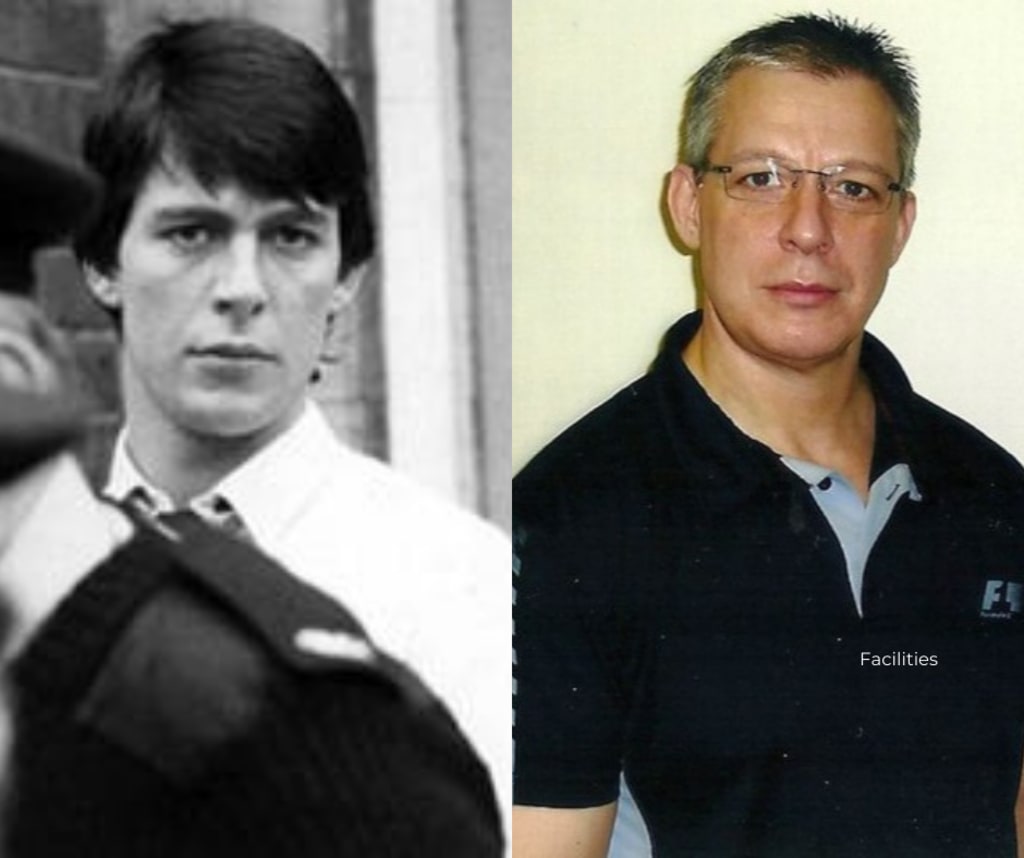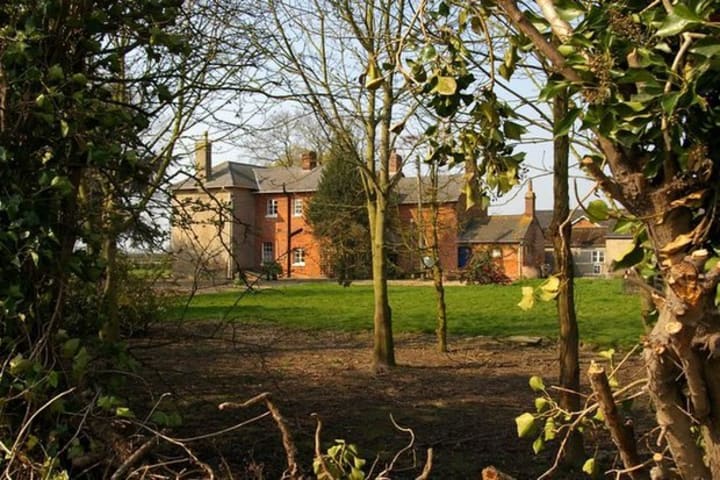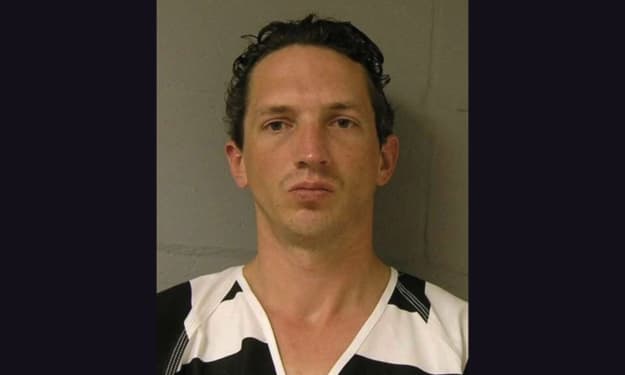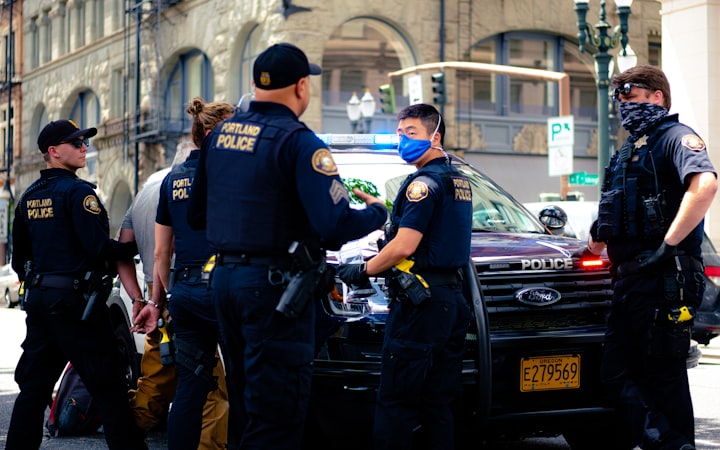Two Overbearing Parents, a Mentally Unstable Daughter and a Jealous Son
The story of Jeremy Bamber and the murders at White House Farm

Jeremy Bamber is a man who caused controversy from birth and will probably continue to cause it well into death. Bamber was born Jeremy Paul Marsham in London to Juliet Wheeler, a vicar's daughter, and British Army Sergeant Major Leslie Marsham. Marsham was a controller at Buckingham palace; they were unmarried. The baby boy was given up for adoption in 1961, the year he was born. Nevill and June Bamber adopted him when he was six months old. Marshal and Wheeler would later go on and marry, both working at Buckingham Palace.
Early life as a Bamber

The Bamber's were wealthy farmers who lived in a large Georgian house known as White House Farm, Essex. Nevill was a local magistrate and former RAF pilot. This was the couple's second adoption, having adopted a baby girl named Sheila in 1957.
Jeremy attended a local primary school followed by Maldon Court, a private run prep school. Finally, in 1970, the parents decided to send him to boarding school in Norfolk. A close friend would later report that Jeremy said he had been sexually assaulted at eleven; he never said who by.
Jeremy left school with no qualifications, which deeply angered his father. He then enrolled in Colchester college, where he managed to resit eight of his O-levels, leaving in 1978. Still, this was not the education that Nevill wanted for his son.
Jeremy was a good-looking man who knew how to use his looks to his advantage; he went on to have relationships with both men and women. The Bamber's, who were highly religious, were said to be outraged at Jeremy's bi-sexual lifestyle.
Criminal life
After school, Nevill paid for his son to take a trip to Australia, where Jeremy took a course in scuba diving. He later travelled to New Zealand, where it is reported that a heroin dealer ripped him off. Jeremy was making a name for himself as a heroin dealer smuggling overseas. The criminal life followed Jeremy when he broke into a jewellery store and stole two expensive watches, giving one to a girlfriend. He left New Zealand in a hurry after being involved in an armed robbery.
Back in England, Jeremy worked many jobs, including restaurants and bar work; he even had a short time working at a local fast-food restaurant. After much persuasion, he agreed to return home and work on the farm for his father. He was paid low wages by his family but was given a car and allowed to live rent-free in one of the cottages his father owned. He was also given an eight per cent share of a caravan site his family-owned. Despite this, Jeremy could not keep within the law and broke into the caravan site and robbed it.
The White House Farm murders
On 7th August 1985, Jeremy received a phone call from White House Farm at 3:30am. On the phone was Nevill, who informed his son that their daughter Sheila had gone berserk with a rifle. His sister had previously been diagnosed with schizophrenia. Months earlier, she had spent time in a psychiatric hospital. Jeremy phoned the police in the early hours to report the incident.
He stated that his father had said, "Your sister's gone crazy and she's got a gun". The line had gone dead, he told officers, after the sound of a shot.
The police entered the farm and found that Sheila had killed herself on the floor of her parent's bedroom. She lay on the floor with the rifle up against her throat. June was found in the same room, lying alongside Sheila's was her two twin sons. Nevill was found in the kitchen downstairs; he had fought with his attacker. In total, the family had been shot twenty-five times at close range. Jeremy now had no immediate family but a large inheritance to spend. The murders looked like a straight case of murder-suicide. That was until Jeremy implicated himself whilst talking to his girlfriend.
The evidence against murder-suicide
Once, the police had been informed by Jeremy's ex-girlfriend, Julie Mugford, that Jeremy had spoken about killing his family for the farming estate, saying, "it's tonight or never." At about 3 am, he phoned her again. "Something is wrong at the farm," he said. "I haven't had any sleep all night."
The police started to look into the crime scene with more details. They found some staggering inconsistencies with their first opinion of murder-suicide.
First, there was no evidence that Nevill had phoned his son the night of the murder. There were no fingerprints or blood stains on the phone. They also argued that a badly injured man would have called the police or an ambulance before his son.
The police also found evidence that the silencer was on the rifle when it was fired. The silencer was later discovered in a cupboard. Once fitted to the rifle, it would be impossible for Shiela to have held the gun to her throat and pulled the trigger; it was simply too long. Sheila had no gun residue on her clothing. It was also argued that Sheila was not strong enough to overcome Nevill; it was clear there had been a violent struggle in the kitchen. The strangest fact that did not match the suicide theory was that she had shot herself twice.
Jeremy further implicated himself by trying to sell topless photos of his sister, a model, to The Sun newspaper. Instead of running the images, they ran a story about the heartless brother. This turned public opinion against him.
The defence team argued that they had records that Nevill had phoned the police before his son. The silencer was unreliable evidence, it was found three days after the killing, by a cousin. Bamber was convicted in 1985 of multiple murders and given a whole life order.
Life after killing
Jeremy still maintains his innocence from Wakefield prison, nicknamed monster manner. He claims his adopted sister was responsible for the murders and Essex police framed him. He states that evidence such as a ripped earring where his sister fought with his father has never been presented.
He works as a peer partner in the prison, helping other prisoners read and write. He has also won several awards for transcribing books in the prison braille workshop.
A group of outsiders still maintain his innocence. He has reportedly started several close relationships with women since his conviction. To date, he has launched two unsuccessful legal actions to recover his share of his family's estate. When he was arrested, his grandmother decided to cut him out of the will. The court has ruled that he is not entitled to any profits due to his conviction.
Appeal and release
In January 2012, Jeremy and two other prisoners took their case to the European Court of Human Rights, stating that whole-life orders were degrading and inhumane. In July 2013, the case went to the courts Grand Chamber where the ruling went in their favour, there must be a possibility of release and review. This ruling could see killers such as Levi Bellfield released.
In 2020, a senior officer admitted he had taken some of the documents about the case and destroyed them.
On 10th March 2021, Jeremy applied to the appeals court. In it, he presented new evidence, eight issues that contained multiple grounds of appeal, he added another two by the end of the year. He claims that officers rearranged items in the farmhouse to implicate him in the murders. He also states that the evidence his sister was unhurt in a struggle with their father is inaccurate as he has x-rays of her injuries. Jeremy says that one of the documents the officer destroyed was a suicide note from his sister describing why she killed herself.
The most prominent evidence is that he claims his father made a 999 call before he called Jeremy. If the call is proved to be from his father, this gives Jeremy a solid alibi as he would not have had the time to make the 999 call and then return home for the second call.
In April this year, Jeremey's legal team were advised that a case review manager had been assigned. However, correspondence indicates that none of the evidence has been reviewed yet.
There is no forensic evidence that ties him to the crime scene. He also has some influential people that maintain his innocence, one being Mark Williams-Thomas, the former detective responsible for uncovering Savile's sexual abuse and coverup.
Whether Jeremy is innocent of the five charges of murder remains to be proven. There are clear questions on both sides. Some evidence points to Jeremy's innocence and some question Shiela's guilt. The police have never given a scenario of how they think either of the parties committed the murders.
What do you think?

Originally published at https://www.murdermayhem.uk on July 6, 2022.
If you enjoyed this article, please subscribe to my writing, share it and give it a heart. As a writer tips and pledges mean a great deal to me, so a massive thank you if you send one.
About the Creator
Sam H Arnold
Writing stories to help, inspire and shock. For all my current writing projects click here - https://linktr.ee/samharnold






Comments
There are no comments for this story
Be the first to respond and start the conversation.